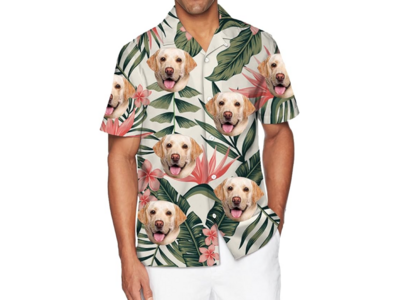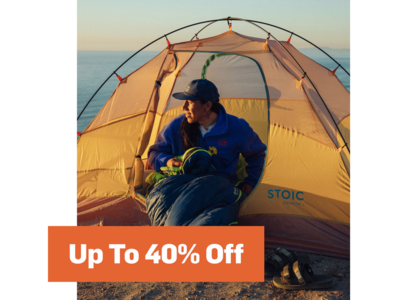The people’s races. Riders, mechanics, staff, and coaches

For this first quick interview. I present to you Chris Killmurray
He is a coach, working primarily with world class mountain bikers in the gravity disciplines of Enduro and Downhill. He own Point1 Athletic, this is their coaching company and as the name suggests the work he do is all about the tenths of seconds. They cover all areas of physical preparation and sports performance for the athlete’s he work with. From strength training to technical & tactical guidance and one to one support at the races the athletes compete in.

How long have you been doing it?
I have been coaching full-time since 2012.
The bikes took you to coaching or the coaching to the bikes?
Bikes took me to coaching. I have ridden and raced mountain bikes since I was a child, with my first DH race happening at the Irish Downhill Championships in 1999. From a very young age I loved all two wheeled sports, everything from motocross to MotoGP and of course BMX! I discovered I had a passion for learning about physical preparation and coaching when I was racing myself, I wanted to improve my own level but I also realized I loved to help others too. I studied Sports and Exercise science in college and then continued to practice and study my craft while riding & racing. So, it was a natural progression.

What riders do you work with?
At the moment I work with some amazing riders. It’s a real privilege! Greg Callaghan, Jerome Caroli,Thomas Estaque, Kade Edwards, Jamie Edmondson, Kelan Grant, Charlie Harrison, Max Hartenstern, Tahnée Seagrave, Reece Wilson.


The level of involvement and type of work I do with each rider is similar. From their physical training and technical or sport specific preparation throughout the winter or off-season, to support and coaching at the races. Of course each rider is an individual, so the exact relationship and the amount of involvement I have day to day in their training and racing is quite individual. It is always interesting work though, not only is each athlete unique but the constant change in training status, injuries, victories or defeats mean we always have new challenges to work at and improvements to make.
Do you work out of the bikes world?
No, at this point in time my work is exclusively at the Elite level of Mountain bike racing.

What exactly is your work with the riders?
A little bit of everything. We take a “holistic” approach to performance. This of course starts with the physical preparation with on and off the bike training. Everything from strength training in the gym to on the bike physical and technical work. I know the riders like they are family, so we work closely at first on the big, important factors, like learning to train safely and effectively in the gym. After that though we take the work to the race course. I attend every World Cup and some EWS, so we work track side and behind the scenes at the races. From warm-ups to injury management and right down to line choice, split time analysis and mental management. The work at the races then feeds back into our preparation and training away from the races. So it’s a constant holistic cyclic approach to performance.


Do you see an evolution in the healthy preparation of the riders?
Yes, every aspect of the “modern racers” preparation is evolving and improving. Especially at the highest level. Riders often now have a performance team around them. In the past it was maybe a coach and your mechanic, but now riders have a coach, soigneur, manager, psychologist and mechanic and in some cases a suspension technician too. For an elite downhiller or enduro racer a good diet is easy to manage, but it’s the organization of training, management of travel and non-race commitments and all these other factors that need to be really thought about. So it’s these areas along with constant improvements in the physical preparation, recovery and mental training that are rapidly evolving.
Do you think DH World Cup will reach the level of MotoGP or stay more like what it is now?
I’m not sure I can predict the future exactly, but DH racing will continue to progress in a more professional direction. It will, I feel, keep it’s uniqueness amongst summer sports. It’s unlikely to become as “mainstream” as MotoGP nor as Elite. We won’t have only 20-30 riders like MotoGP nor will we have only a few manufacturers but we will reach new levels of competition in technology. Things like aerodynamic, telemetry, rider data and suspension technology will continue to be pushed to their limits in DH and I feel that already the physical preparation of the riders in DH is at a level higher than that of many motorsports, including MotoGP. I don’t think DH will ever be as widely followed as MotoGP but we will progress to very high levels of professionalism.
Is the diet as important in the DH world as of the rest of Mtb?
I think often too much emphasis is put on diet being a secret weapon to performance. Diet along with sleep are cornerstones (keys) to performance but this does not mean diet needs to be complicated. Riders need to eat enough to support training, consume enough carbohydrate to support high intensity or density training. Spread their quality protein intake out over the day and consume lots of colourful, seasonal and fruits vegetables and fats to cover their micro and macro nutrient needs. Their diet at the races is then just an extension of their consistent approach to nutrition at home that allows them to train to a high level. Of course supplementation and specific nutritional strategies come into play at World Cup level but these are only deployed and fine tuned on the back of a regular and effective home diet.
COVID_19 Theme

How do you work with the riders in this situation?
At the moment we are working over the internet, using everything from What’sApp to Instagram, Skype and lots of photos and videos. I work with a diverse range of riders from all over the world, so we are used to working via distance. We already do lots of our training monitoring using different apps and online systems. In this particular situation though, where we don’t know exactly when the next race will be we are being creative with how we approach training & preparation. Each rider is an individual, so for example, Tahnée is recovering and rehabbing a broken leg and currently she cannot see me or her physios face to face, so this means we must be very creative and keep her rehab progressing! Other riders like Charlie Harrison or Max Hartenstern for example were 100% ready to race Lousa, so now we have to re-focus mental and physical energies on improving weaker areas of physical performance and of course planning some needed rest and recovery.
How do you see the future of 2020?
As I type this I don’t think the rest of 2020 is looking too good. There will be positives that come from this pandemic, but short term lots of challenges. The possibility of having no races in 2020 is high, we hope not, but the health of the world’s population comes first.
Do you think we'll have races? Maybe a mini-worldcup and the World Championship?
The type and number of races we have will depend on the progression of the different travel restrictions in each region or country. We can’t have a World Cup or Championships if there are still restrictions on travel from certain regions. There are also many budget issues for teams and of course some interesting problems for the UCI in terms of qualifications, UCI points, eligibility and of course junior racers messing a whole season etc...
After the isolation how much time will the riders need to be ok to re-start the season?
Physically the riders will be close to ready, it is the specific training that we will need to plan and progress with care. Luckily we don’t have the same volumes or impacts as a soccer player or marathon runner so for us it is less complex. But for example returning to race Val di Sole haven not ridden your race bike in 8 to 12 weeks would be crazy. So not only do coaches and riders need to think about this but also teams, organizer and of course the UCI.
Do you think Covid19 will change racing and traveling in future years?
Yes I think there will be some changes for the better, maybe not huge changes in terms of the checks, controls and entry procedures to different countries but I am hoping people will now be more conscious of how their own actions, cleanliness and mindfulness about how they act if they are infected with a cold, flu or other virus affect others. Medical data is obviously personal, so I hope we won’t be in a situation where we have to prove our immunity or lack of illness to enter different countries.






